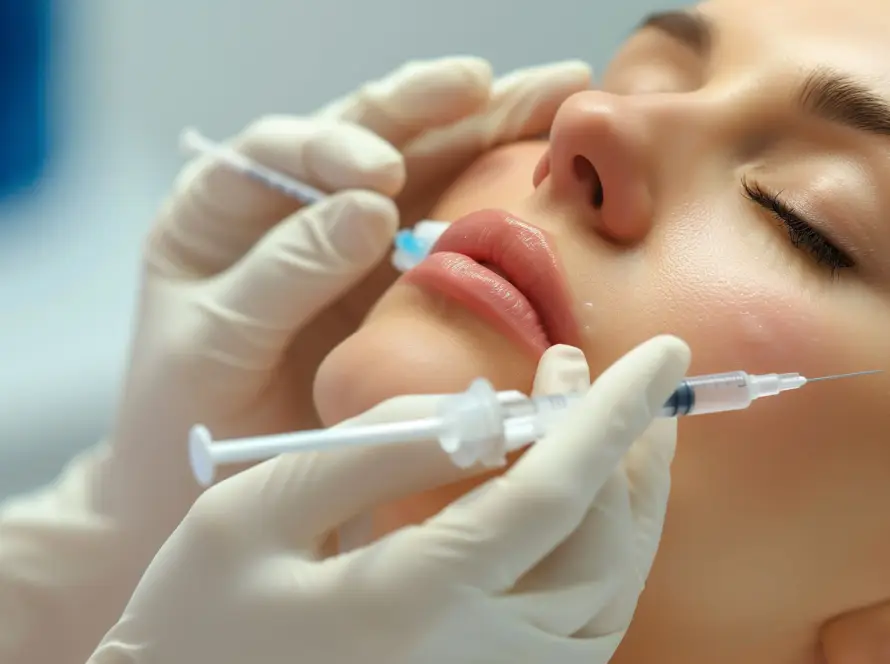For wellness and aesthetic clinics, having a medical director isn’t just a box to check for compliance. The difference between a disengaged “paper” medical director and a truly proactive one can determine whether your clinic thrives, or ends up facing legal and operational setbacks.
A proactive medical director doesn’t just sign protocols and disappear. They play an active role in guiding your clinic’s safety, compliance, and growth. If you’re running a med spa, IV therapy lounge, hormone clinic, or telehealth practice, here’s what a proactive medical director should cover.
Setting and Reviewing Clinical Protocols
Every medical service offered in your clinic, whether it’s Botox, hormone replacement therapy, IV therapy, or semaglutide weight loss programs, requires a protocol. These documents outline who can perform the procedure, what training is required, and how to handle adverse events.
A proactive medical director ensures that protocols are:
- Tailored to your clinic’s specific treatments
- Updated regularly to reflect new standards and regulations
- Reviewed with staff so everyone understands their responsibilities
At Wellness MD Group, our medical director services include ongoing protocol review to make sure your treatments remain safe and compliant.
Delegation and Staff Supervision
One of the most important roles of a medical director is defining who can do what. State laws vary, but generally only licensed medical professionals can administer injections, prescribe medications, or start IVs.
A proactive medical director doesn’t leave delegation to chance. Instead, they:
- Verify staff credentials and training
- Clearly define scope-of-practice limits
- Ensure delegation complies with state law
- Stay accessible when staff have clinical questions
Chart Audits and Documentation Oversight
In the event of a complaint or audit, your documentation is your best protection. A proactive medical director reviews patient charts to ensure proper intake, informed consent, treatment notes, and follow-up instructions are consistently documented. This oversight helps catch problems early, such as incomplete consent forms or missing vitals, before they become regulatory liabilities.
Staying Ahead of Regulatory Changes
Healthcare regulations are constantly evolving. What was acceptable last year might now require additional oversight or documentation. A proactive medical director keeps track of state medical board updates, HIPAA rules, and FDA guidance, then translates those changes into practical steps for your clinic.
For example, as telehealth regulations shifted post-pandemic, clinics needed new protocols for virtual prescribing and patient location verification. Without a medical director monitoring these updates, many clinics risked falling out of compliance without realizing it.
Emergency Preparedness and Risk Management
Even the safest treatments carry risk. Patients can faint during IV placement, react to a medication, or experience unexpected side effects. A proactive medical director ensures your clinic is ready with:
- Stocked emergency supplies such as epinephrine and diphenhydramine
- Staff trained in basic life support (BLS)
- Clear protocols for handling adverse events
- Follow-up procedures and documentation requirements
This preparation not only protects patients but also shields your clinic from liability if an incident occurs.
Guiding Service Expansion Safely
Whether you’re adding hormone therapy, IV nutrition, or regenerative aesthetics, expansion should always include medical director involvement from the start. Many clinics want to grow their offerings, but adding a new treatment without proper oversight is risky. A proactive medical director helps you expand responsibly by:
- Reviewing proposed new services
- Creating protocols and training plans for the additions
- Ensuring your business structure can legally support themz
- Advising on marketing compliance for new treatments
Supporting Telehealth and Mobile Services
With more wellness clinics offering telehealth and concierge-style care, oversight has become even more complex. A proactive medical director ensures compliance in these models by verifying patient location at the time of service, ensuring provider licensing in multiple states if needed, and reviewing consent forms specific to telehealth.
We regularly support clinics offering telehealth and mobile wellness services to stay legally compliant while taking advantage of new care models.
Why a Proactive Director Is Worth the Investment
It can be tempting for clinics to choose the cheapest medical director option available, someone who signs papers but rarely engages. The problem is, regulators are increasingly cracking down on “paper” directors. Clinics caught without real oversight face fines, license suspensions, and even forced closures.
A proactive medical director, by contrast, provides:
- Legal protection through compliance
- Enhanced patient safety and satisfaction
- Peace of mind for owners and providers
- A framework for scalable, sustainable growth
The role of a medical director is not symbolic, it’s essential. A proactive medical director goes beyond compliance to actively support your clinic’s success, from chart audits and protocol updates to staff supervision and service expansion.
At Wellness MD Group, our medical directors are engaged partners – not passive signatories. We support clinics nationwide with flexible and genuinely proactive oversight.
Request a Consultation to learn how a proactive medical director can support your clinic.













